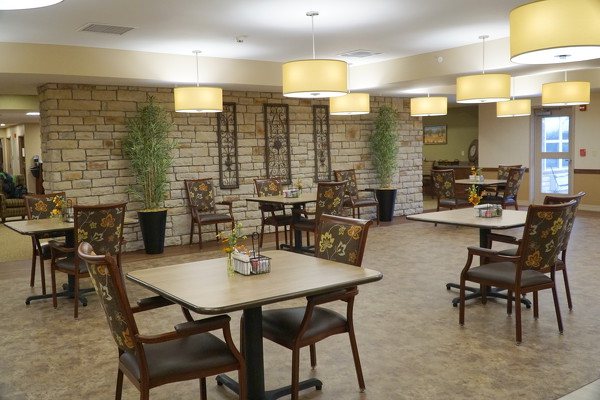Friday, November 29th, 2019
Addiction-recovery service to open clubhouse
By William Kincaid
CELINA - Foundations Behavioral Health Services will soon debut its "clubhouse," a place to facilitate services and support to those recovering from drug addiction.
Located in the heart of Celina at 221 S. Buckeye St., next to Lake Contracting Co., the clubhouse eschews the stuffy, clinical feel of a typical counseling center for a more welcoming, relaxed atmosphere.
Recovery coaches Thomas Collett and Savannah Thees, who both have experienced addiction, will play a key role in shaping the clubhouse's offerings, a combination of counseling services and support structures.
"It kind of centers us more in the community to maybe better acquaint people to services within Foundations," Collett said.
"Ideally, this might be more comfortable for people, especially in recovery. They might open up more," Thees added. "It's not your typical counseling setting."
The clubhouse's inception was funded in part through federal funds, case manager Christi Stacy said. It likely will open its doors in the coming month or so, officials said.
Thees said the clubhouse will be a safe, supporting place for those undergoing services on the road to sobriety.
"A lot of people in early recovery don't have the safety net of sober family, sober places to go so then they isolate," she explained. "This is going to be a place where we can all come together as our new recovery family and all hang out and learn new things to do to occupy time."
The recovery coaches aim to offer an array of programs to steer participants toward independent living by teaching life skills and job readiness. Workshops in crafting, cooking and other activities will help them find ways to maintain a substance-free life.
"They tend to relapse because they go back to what they've always done because that's what they feel comfortable with," Stacy said.
Through their own direct experience with addiction, recovery coaches are well aware of the pitfalls lurking in the early stages of sobriety, Thees said.
"It's things we struggled with and didn't have all the steps to get us where we needed to be so now we know how to get the services they need or link them into licenses, birth certificates, daily living," she said.
Clients' initial sense of unease and trepidation is sometimes offset once they know their recovery coaches have walked in their shoes.
"They can relate to me and I can relate to them so they're not embarrassed," Thees said.
"We're a lot more relatable so that helps us be able to engage in other services like with case management and counseling," Collett noted.
Foundations addiction services coordinator Matt Ronan hopes to raise public awareness of recovery efforts.
"I'm hoping the community realizes that people are getting sober and they're staying sober," he said.
Thees said the sooner people stop labeling others, the more likely they are to succeed with sobriety.
"I ask the public to consider there is science behind what we do," Stacy said. "We base our treatment on best practices. We are constantly updating our skills."




